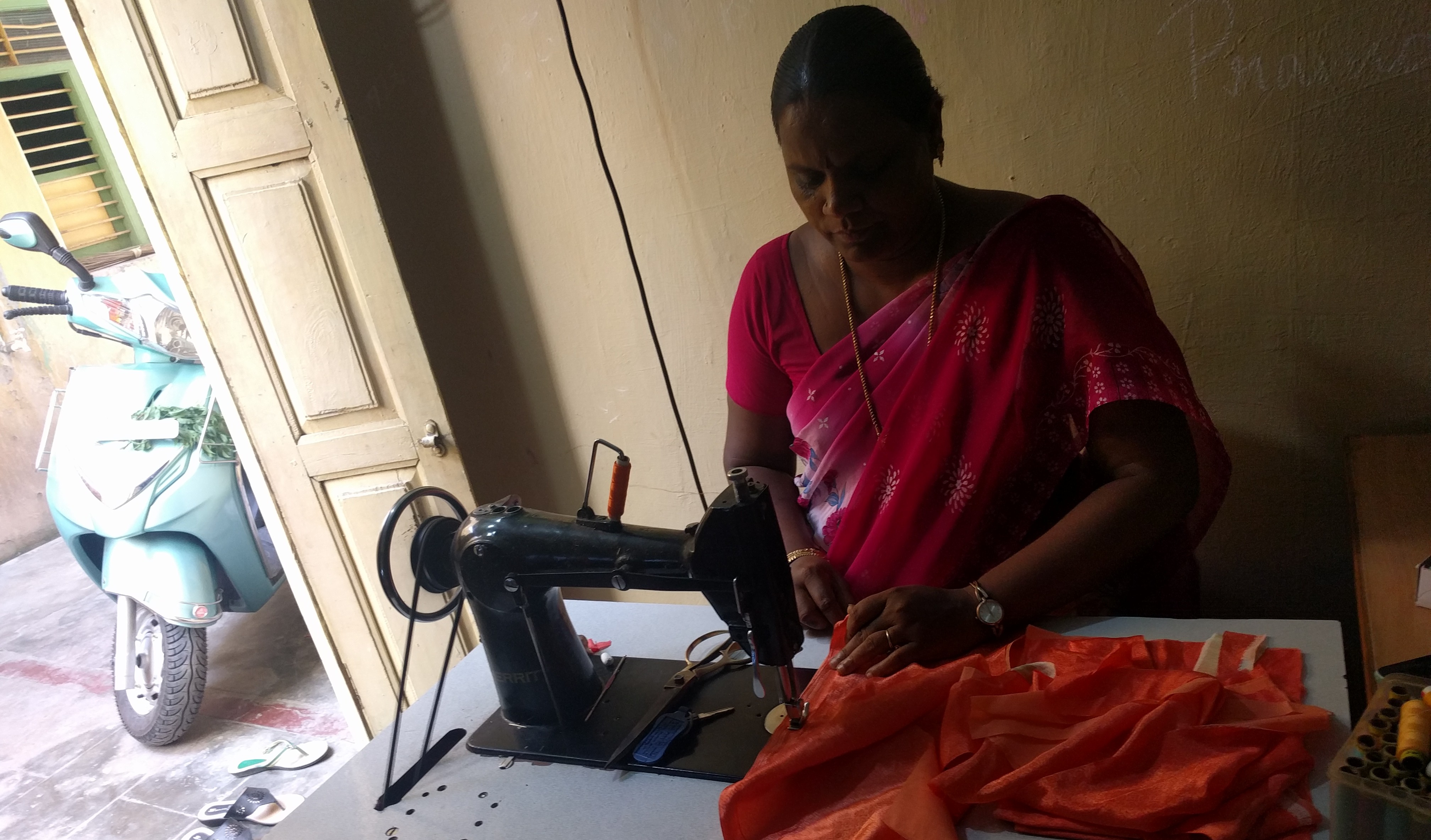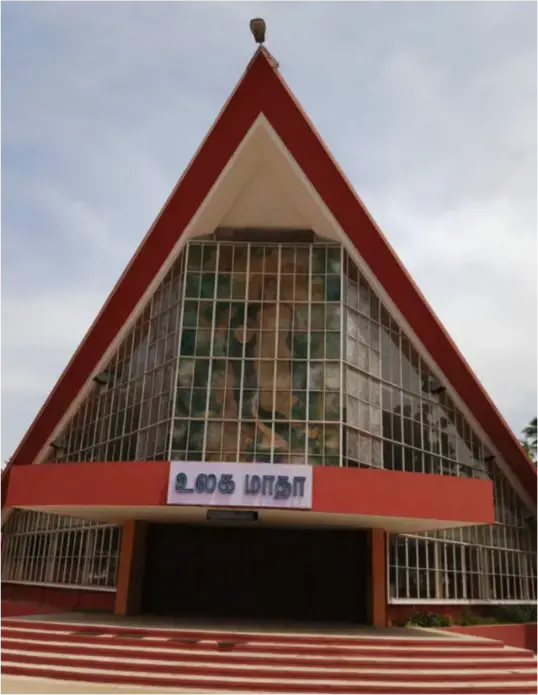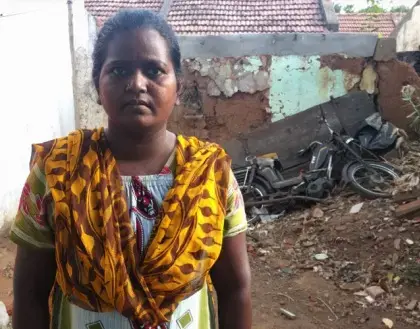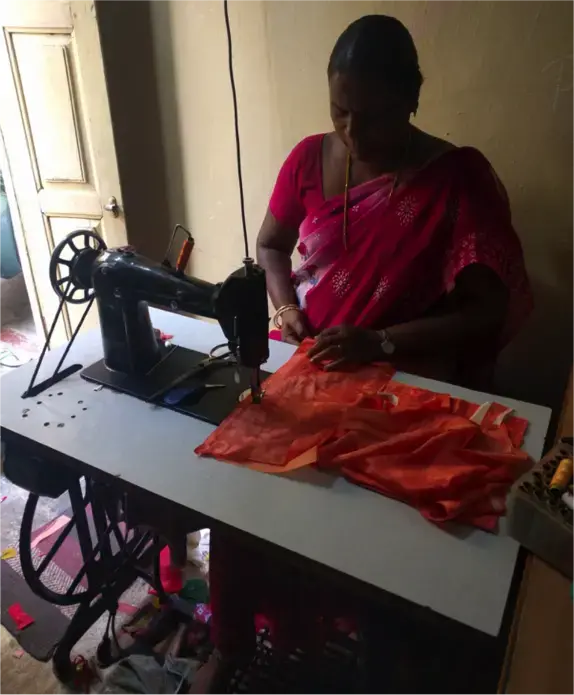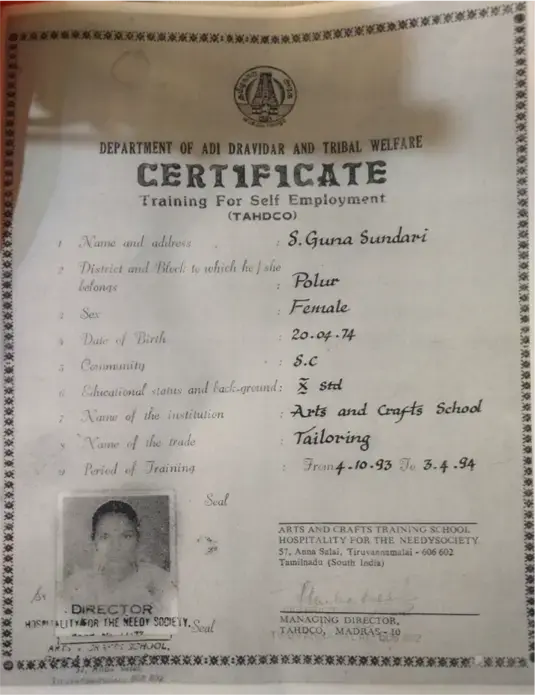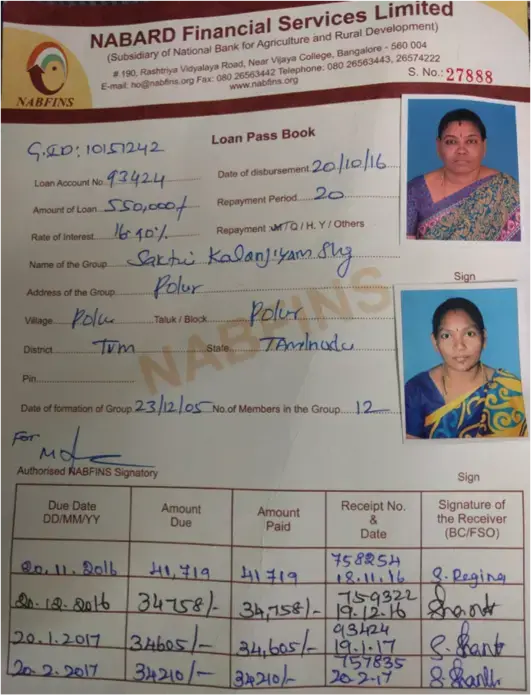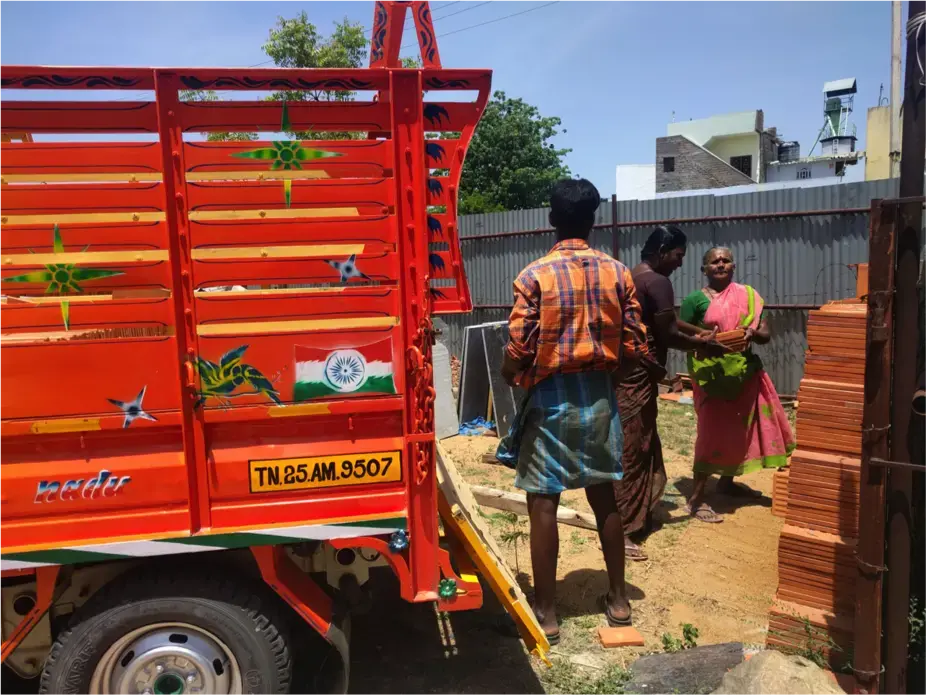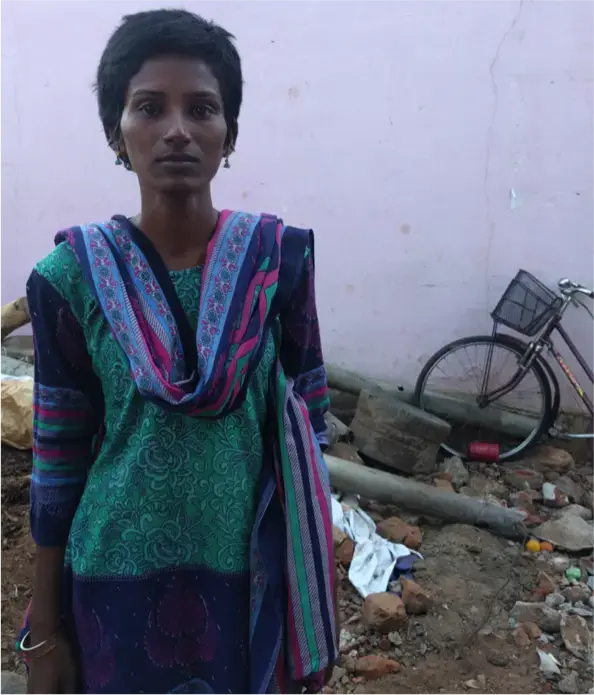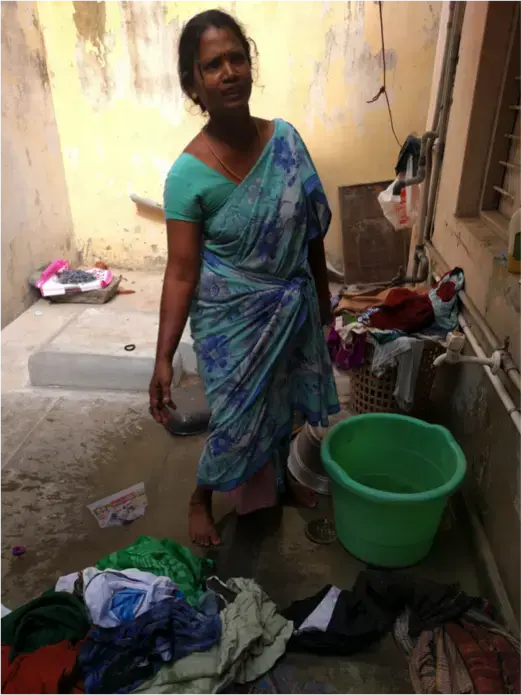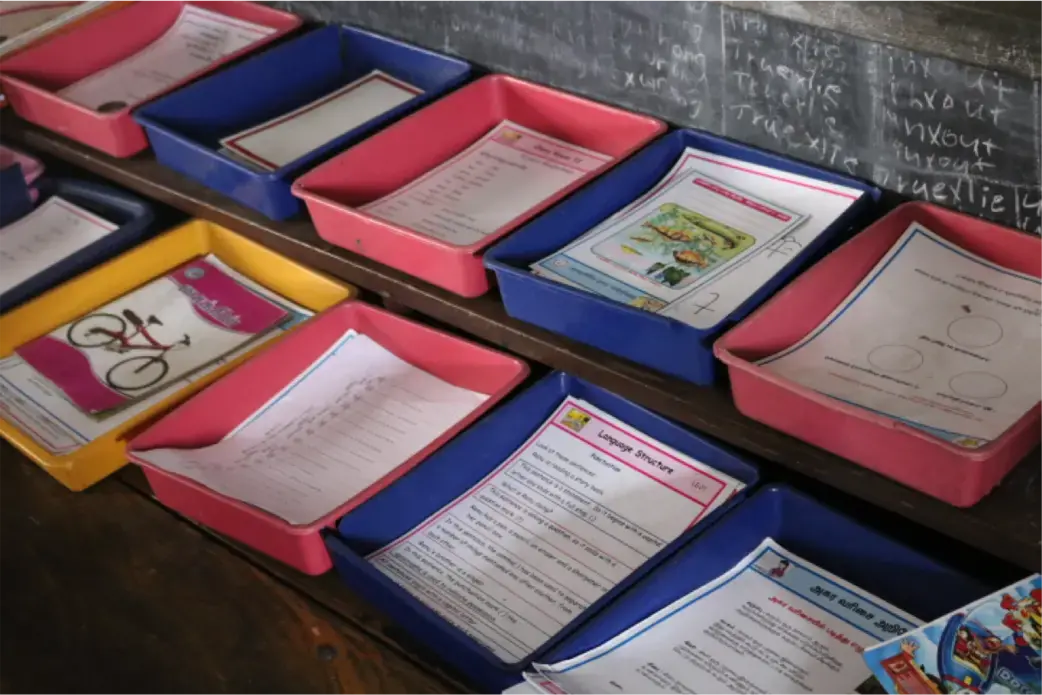Family Burden
Dhanalakshmi, 30, started working when she was 18 years old in a toyshop. Later she worked in a medical clinic handing out tokens for eight years.
“Currently, my mother is very ill—she can’t even sit up without help,” said Dhanalakshmi. “I stopped working in the clinic three years ago to take care of her.”
Although she is still staying home in Thiruvannamalai to look after her mother, Dhanalakshmi plans to start earning money again once she has funds to buy a sewing machine.
Patriarchy and discrimination have dominated Indian society for many generations. Practices such as the dowry payment and infanticide have subjugated women and children.
However, Article 14 of the Constitution of India, in effect since 1950, guarantees equality for all people. Despite some improvements, women still struggle in India’s male-dominated society. Many girls must give up their education to start working at a young age so they can support their families.
“I learned tailoring for a year at the Ulaga Matha Church because it was free,” said Dhanalakshmi. “I learned there with nine other girls who are also poor like me. I don’t have enough money to buy my own tailoring machine at the moment, but when I do I will buy one and start independently tailoring to earn money, and teach others as well.”
Gunasundari, now a successful tailor, also turned to tailoring to support her family.
“My dad worked on a farm and didn’t have enough money to send me to school so I stopped in the 10th grade and learned tailoring to bring income to my family,” said Gunasundari. “What I earn still is not sufficient for my family, but because of my siblings’ salaries we are able to combine our earnings and support the family. I have four older sisters and one older brother; they all work in agriculture.”
The Ulaga Matha Church teaches lower class children and also provides income and boarding in hostels within the church.
“I learned tailoring at the Ulaga Matha Church in Thiruvannamalai in 1994,” said Gunasundari. “They teach many girls tailoring and, through the government, gave us a salary of 400 rupees (US$ 6.25) while we were there. The Ulaga Matha Church teaches crafts such as tailoring, typewriting and many others. Orphans can stay there and learn crafts to get jobs later on.”
Churches such as the Ulaga Matha Church and numerous women’s empowerment groups provide a beacon of hope for women who cannot find jobs due to a lack of education.
One such women’s empowerment group is the Sakthi Pengal Munnettra Sangam (Strong Women’s Improvement Group) based in Polur, a town in the southern state of Tamil Nadu.
“This women’s empowerment group was started by Jaya Dhamodaran, who is now the secretary of all 600 women empowerment organizations in Polur, in December of 2005,” said Auxilia Fernandes, the president of the group.
The group began with 17 women, who all contributed funds to a joint bank account. This bank account, still in use today, gives loans to women who need money but do not have enough qualifications to acquire a loan directly from a bank.
“Our group also functions as a charity and we offer free training classes,” said Fernandes. “The classes include computer courses, tailoring, making lunch bags and holiday cards and other handcrafts. The classes are strictly for those who experience poverty, so that they have an equal chance to get a job and support themselves.”
According to Fernandes, the government gives 2,800 rupees (US$ 44) as a financial incentive for women who attend the classes, which run for three months at a time.
There are about 600 groups similar to the Sakthi Pengal Munnettra Sangam in Polur alone—all government approved and working to empower women.
Wages
As stated in the United Nations Development Programme's 2016 Human Development Report, India ranked 131 out of 189 countries. It also ranked 125 out of 159 countries according to the Gender Inequality Index. Additionally, India had a 16.1 percent of inequality in income in 2016.
At Shakthi Ganga, a store that sells building supplies in the town of Polur, the men are paid 320 rupees (US$ 5), while the women are paid 160 rupees (US$2.50).
"I've been working since I was 16 years old," said Rajalakshmi, a cashier at the store. "My dad stopped working so I had to start working to help the family."
Shakthi Ganga workers usually do not work overtime, but Rajalakshmi works on Sundays as well for overtime money to cover household expenses. Still many women struggle to provide for their families.
"My salary, because I have to support my kids, my parents and my sisters, is definitely not enough right now," said Nalina, 28, who works in a clothing store. "I think a lot about how I could change my job and my life to benefit my kids. I hope to get some sort of small government job to better support my kids so they can go to school and have a good life."
No one in Nalina's family has a job, so she has to use the 4,000 rupees (US$ 62.75) she receives per month to support everyone in her family. Nalina's husband left her four years ago because she gave birth to two female children and she now raises them on her own. Her mother has to take care of them most of the time because Nalina works everyday of the week from 9 am to 10 pm.
Many women like Nalina find it difficult to use their salaries to cover all family expenses with their salaries.
"I started doing housework for other people when I was in the fifth grade, at 10 years old," said Devi, 30, a housemaid. "I earn 3,000 rupees (US$ 47) per month, but it definitely doesn't meet my family's needs to buy cooking supplies, rice, school supplies and pay school fees for my two sons."
Improvements in the Public School System
Many families have pulled their children out of school because they think government schools will not benefit their kids and they do not have the funds to pay the fees for private school.
However, the Indian government has made many improvements to the public school system.
Although women such as Dhanalakshmi and Gunasundari had to drop out of school in order to support themselves and their families, the Indian government has instituted Branch Regional Teachers to bring back students who have previously left school. These teachers are tasked with visiting children who dropped out, inquiring about why they left school and then reassigning them to the grade that matches their age they are at the time.
Additionally, to help lower class students, the government has started giving financial incentives to female students.
"The government has been giving 500 rupees ((US$ 7.85) to female students third grade and up who are members of Most Backward Caste, Scheduled Caste or Scheduled Tribe, which are three of India's lowest castes," said Vimala Dhamodharan, a secondary grade teacher in the village of Periyagaram.
The government also gives the village counselor 15,000 rupees (US$ 235.50) per school each year for maintenance costs. Students are given four sets of uniforms per year, shoes, a backpack, books and notebooks for free in government schools up to the 12th grade.
"The government keeps changing the syllabus," said Dhamodharan. "They've started this new system of learning with cards, instead of with books, and they give the teacher training on how to effectively teach with the cards. It's called Activity-Based Learning. They began use of the cards because it's easier for the students to learn for themselves and then use textbooks for reinforcement."
With improvements to the public school system, more young girls will complete their education. Women like Nalina and Devi will be able to find jobs with sufficient salaries to support a family.


